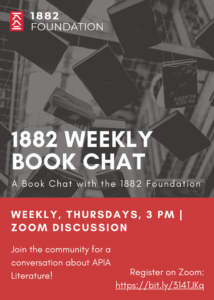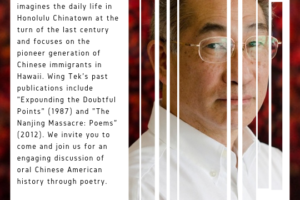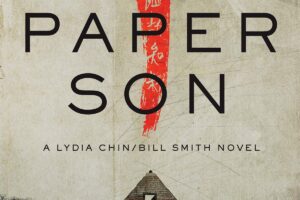Following last week’s discussion of Orientalism, we’re shifting our focus to the idea of homeland — as culture, as concept, as a real or imagined place. In an era where xenophobia and racism reign and mass consumption has reduced “culture” to a corporate buzzword, the question we want to focus on this week is: what does a meaningful connection to homeland look like?
“Here on the earth where bones are buried, the question remains: if the birds of history alight by a ritual of body and landscape, do they make the return out of longing, out of heartache?” — Jennifer S. Cheng
Resources/Readings for this week:
“Southern Fried Asian”, a podcast featuring the 1882 Foundation’s very own Stan Lou:
In this recording of a previous Talk Story event, Stan discusses his experiences growing up in Greenville, Missouri as a Chinese-American in the era of segregation, tracing his own journey from the desire to assimilate to the longing for a reconnection with homeland.
Guiding Questions:
To what extent does the desire to assimilate into whiteness feel familiar?
Does pressure for immigrants to learn a new language compel them to erase parts of their connection to the homeland?
How do your experiences with assimilation into whiteness compare to Stan’s?
An interview with Yanyi (yin-YEE)
In this interview with BOMB Magazine, Yanyi — a queer, trans Chinese American writer and critic — talks about the intersections of poetry and identity, the inheritance of love, and the traumatic legacy of assimilation.
Guiding Questions:
Yanyi mentions the importance of reclaiming “Americanness” — what does “Americanness” look like?
How can we move from an inheritance of trauma to an inheritance of care? Can these two coexist?
How can we prevent the passing of trauma to future generations?
Jennifer S. Cheng’s poems are deeply sensitive to the competing forces — history, alienation, migration — which influence the construction of selfhood for immigrants and their children. In these poems, excerpted from her collection House A — a meditation on “immigrant home-building that explores how the body is inscribed with the cosmology of home” — Cheng writes letters to the late Chairman Mao and ponders the act of building an American Home.
Guiding Questions:
To what extent is the “homeland” a mythical or imagined place?
How can we avoid Orientalism when we conceive of the homeland?
More importantly, do we need a vision of homeland in order to reconnect with heritage?
As always, you can find the registration at https://linktr.ee/1882Foundation under “Weekly Book Chat Registration”



